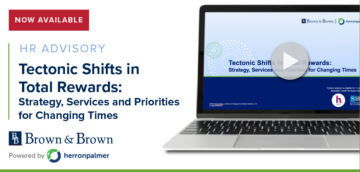We were once told that asking about someone’s salary or discussing your salary with coworkers was a fireable offense. No wonder such a negative stigma has been built around pay transparency.
Enter: pay transparency legislation. What was once a nightmare for HR departments – employee salaries becoming public knowledge – is now becoming common and increasingly required. Ensuring that your employees are appropriately and equitably compensated, understanding your position within the labor market and taking a stance on what you must share, what you ought to share and what can remain confidential are all critical elements of a modern HR function.
According to a 2024 Payscale survey, 60% of organizations now include pay ranges in job postings, up from 45% in 2023. Interestingly, Payscale reported that nearly 15% of organizations experienced turnover due to sharing ranges, reinforcing the risk of transparency without due diligence.
If transparency reveals inequity – or the perception of inequity – therein lies the real source of risk.
We strongly recommend that employers embrace this change for the sake of their market competitiveness by analyzing and addressing real inequities and then communicating to address any lingering perceptions. Over half of organizations prioritize training managers to communicate with employees about compensation, which is fundamental to cultivating employee understanding. Employees need to understand why compensation might be appropriate to vary across individuals, accounting for factors such as education, experience or performance. Talking openly with employees about pay, when done right, fosters trust between employees and employers. While these statistics include the approximately 25% (soon to be nearly 50%) of American workers currently protected under Pay Transparency legislation, it also includes workers with employers reacting to the reality that there are consequences to resisting jumping aboard the transparency train.
The salary stigma is shifting, and HR professionals are pivotal in progressing in the right direction. When everything is kept secret, is it surprising that a culture of mistrust is fostered?
This shift in legislation is mirrored in candidate expectations. Depending on the survey you choose to reference, 60-85% of candidates polled say they won’t even apply to a job if a salary range is not included in the posting. Companies are hurting themselves and limiting their candidate pool if they can’t – or worse, refuse – to take an intentional approach to pay transparency.
As lawmakers take action, passing more and newer transparency legislation, there has never been a better time for companies to examine themselves and ask: Do we have a philosophy, and are we confident in it?
herronpalmer can help provide insights to inform prudent strategies for organizations to comply with evolving regulations and support you in navigating this new world where…WE ARE TALKING ABOUT SALARIES.



